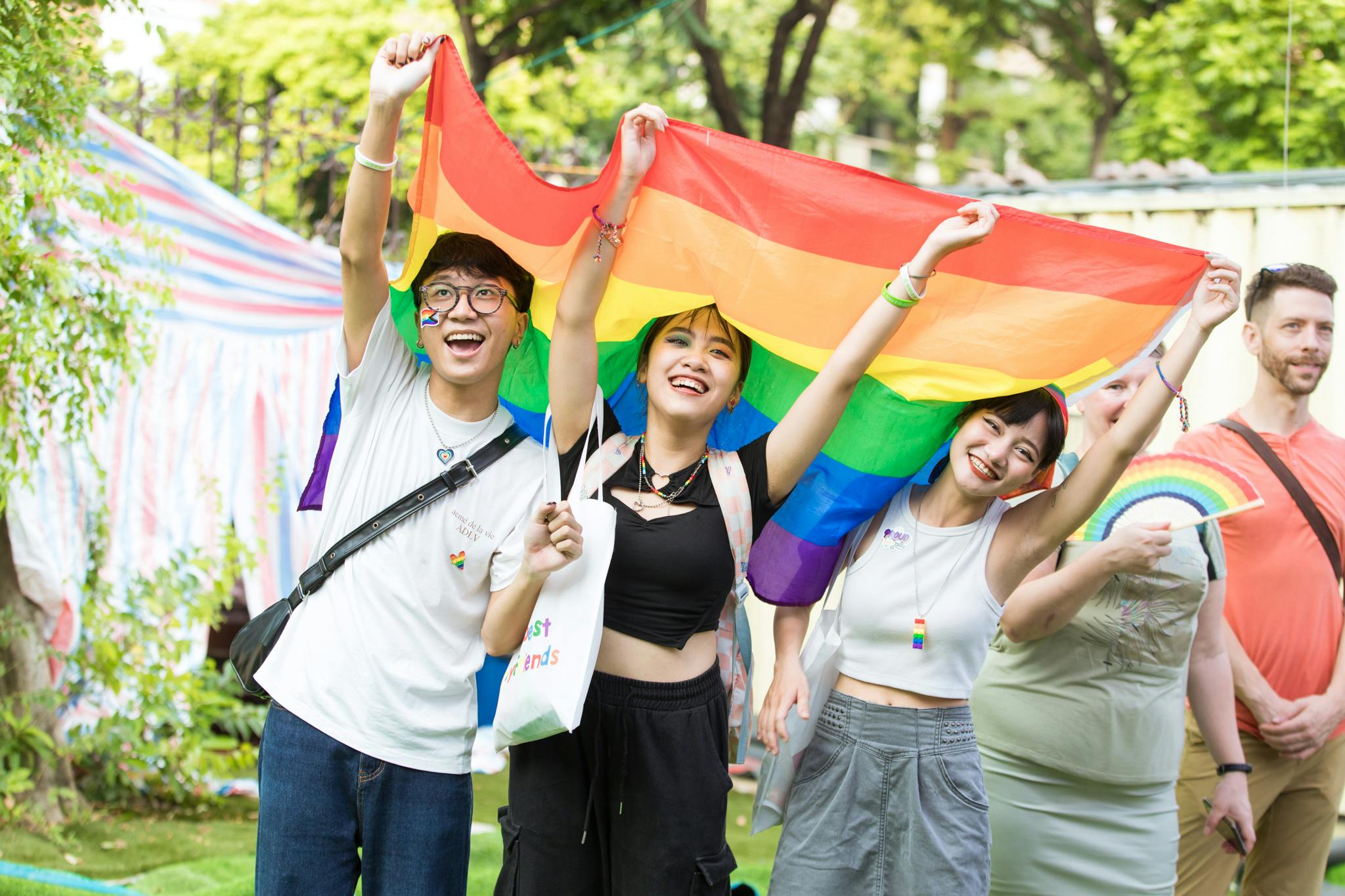
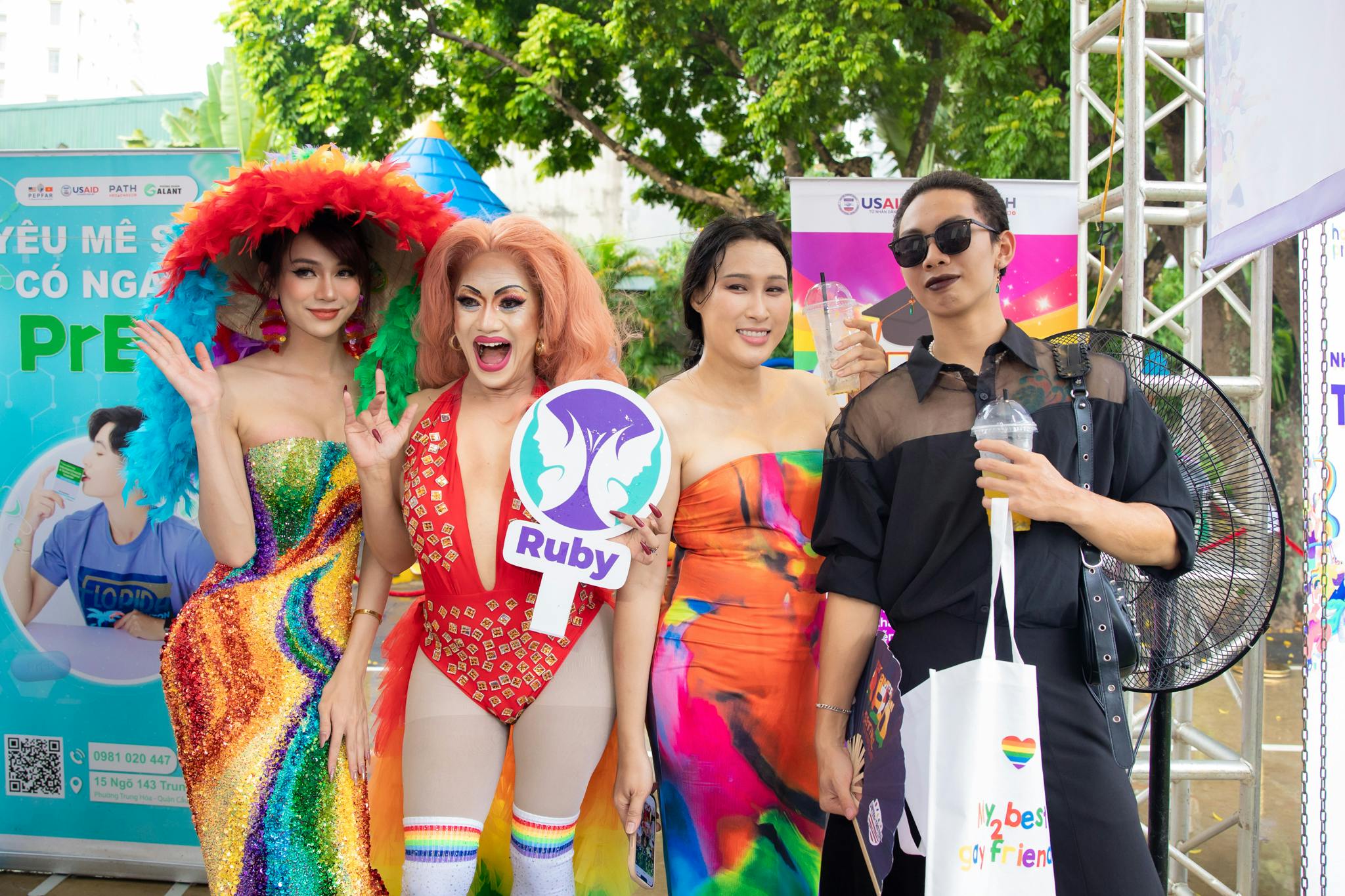
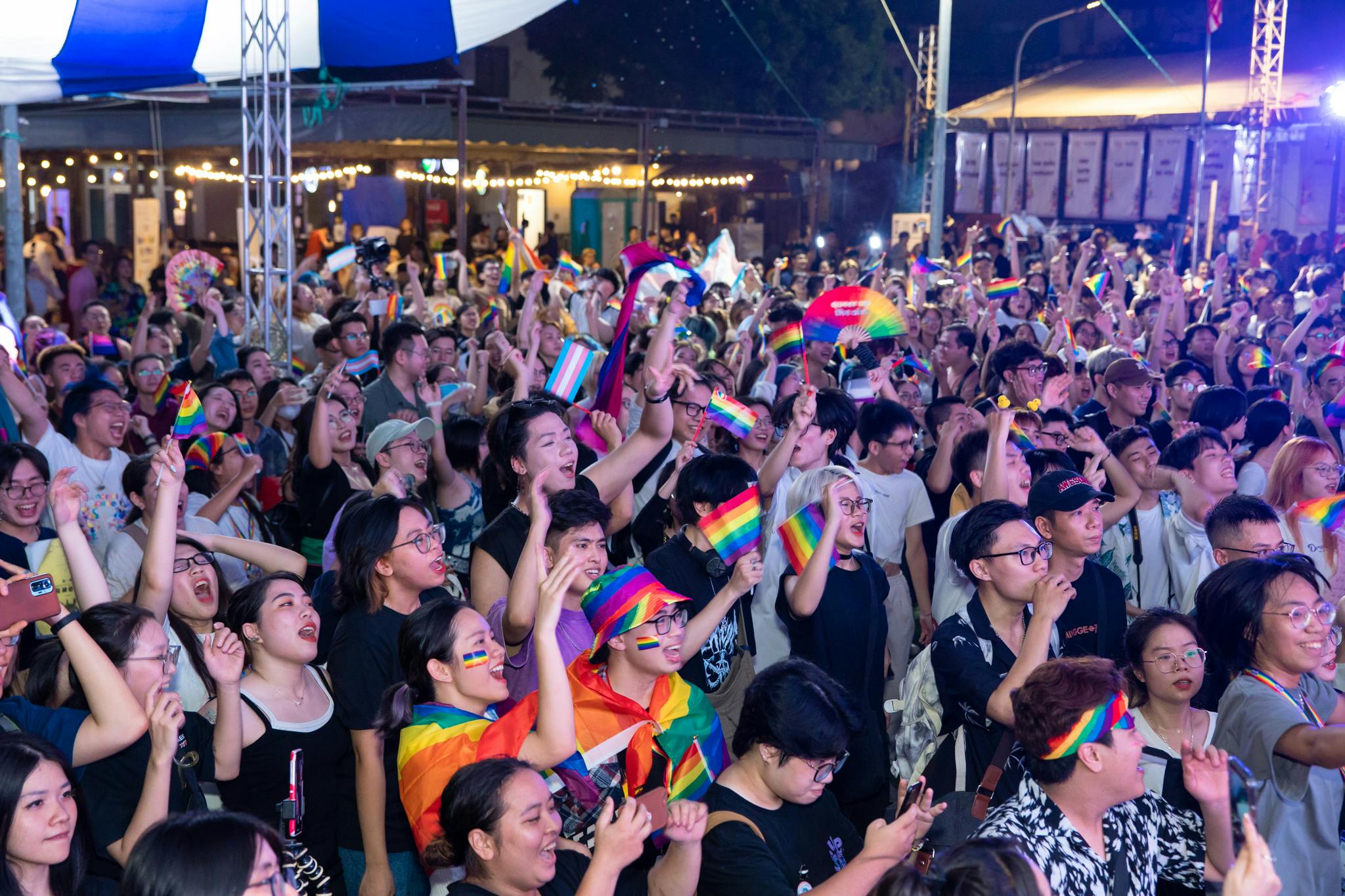
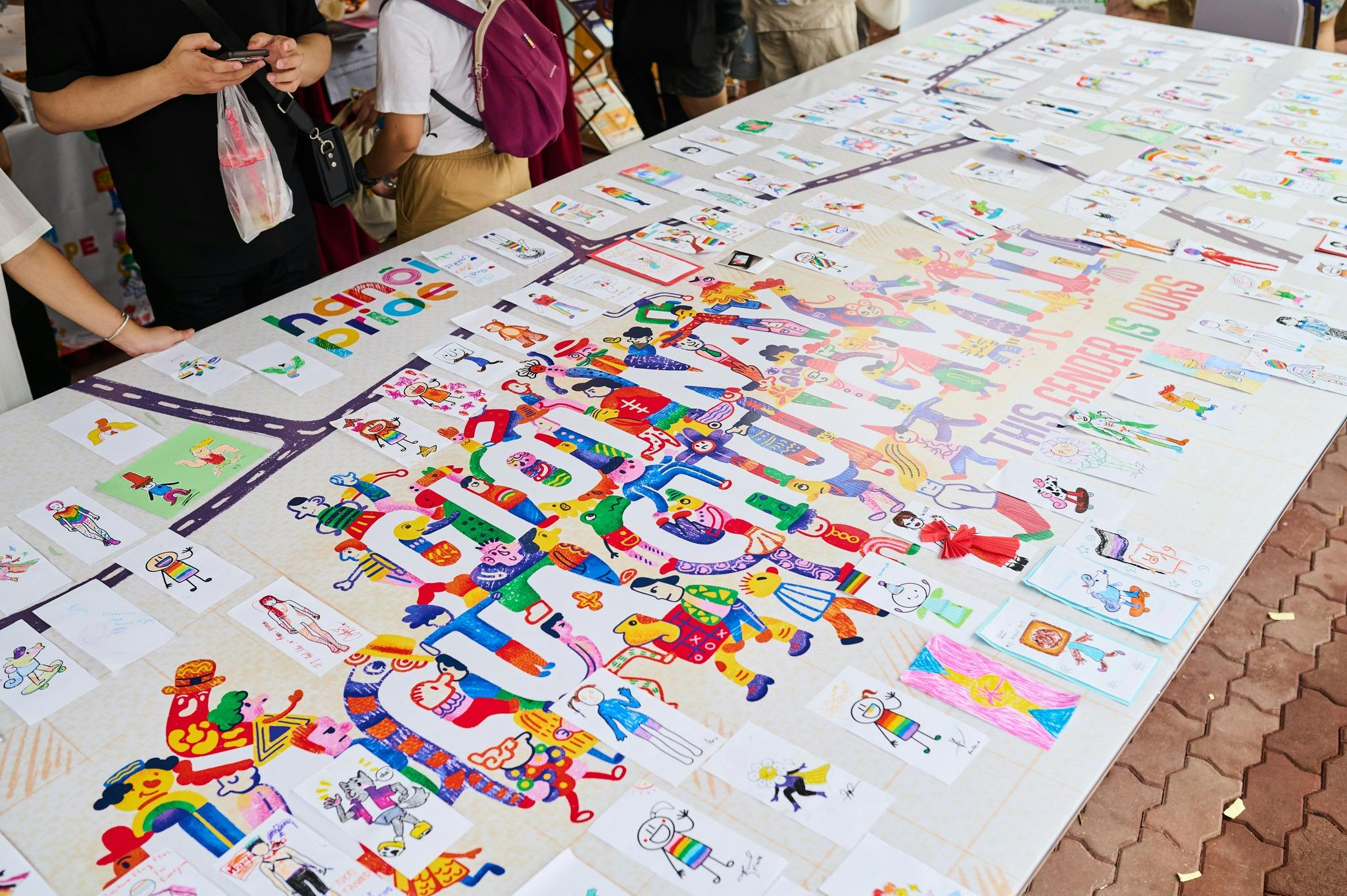
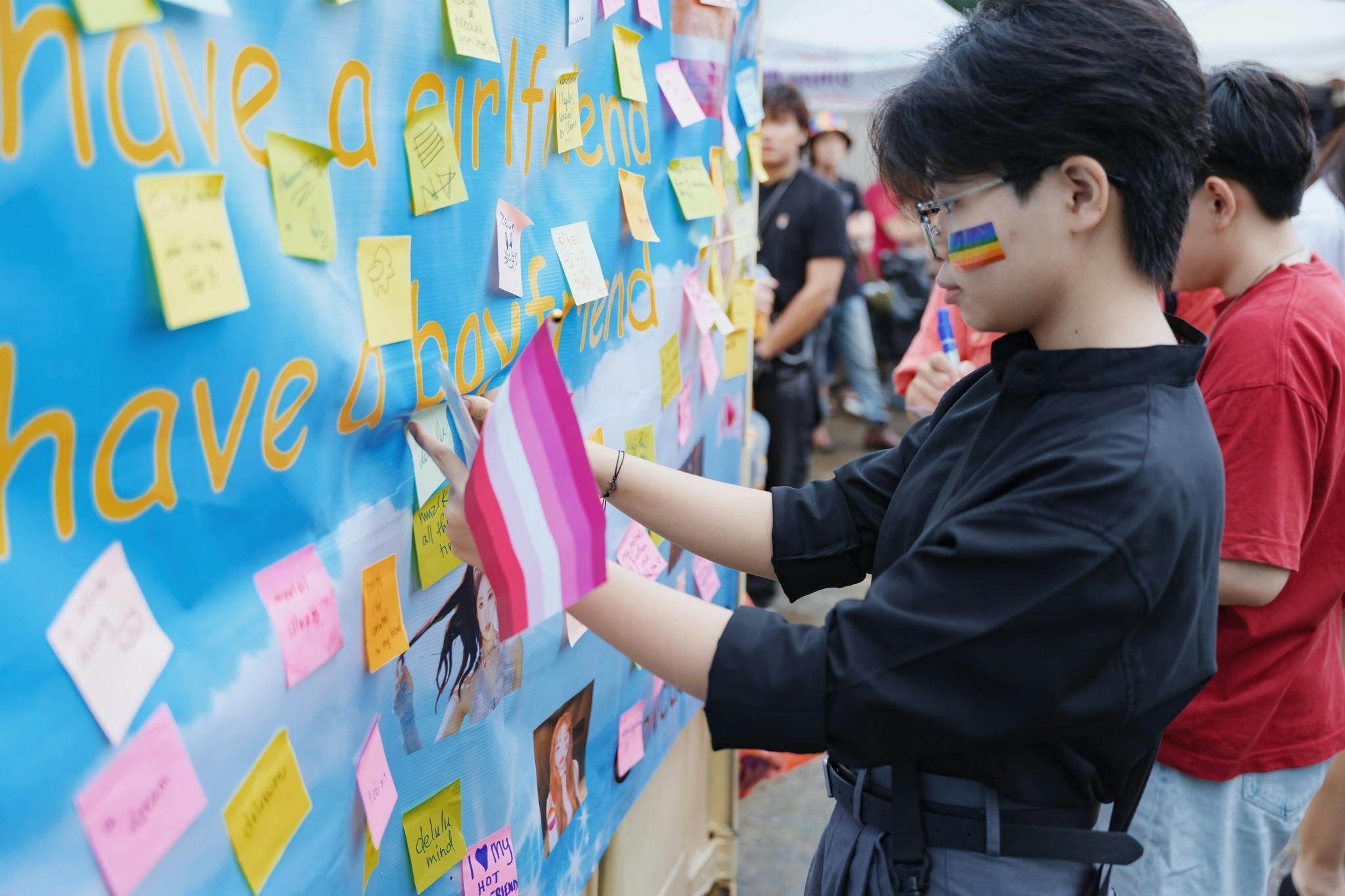
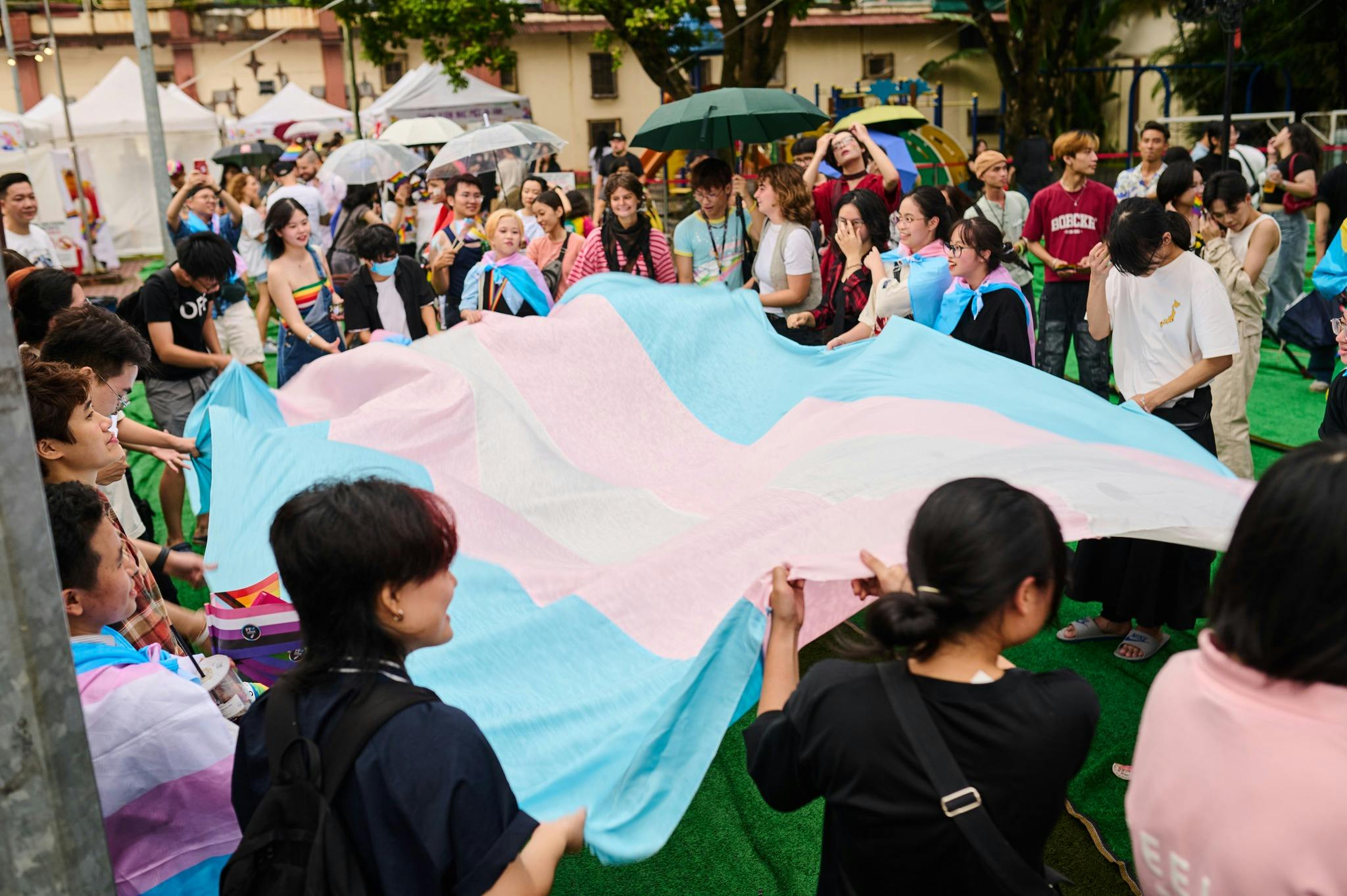


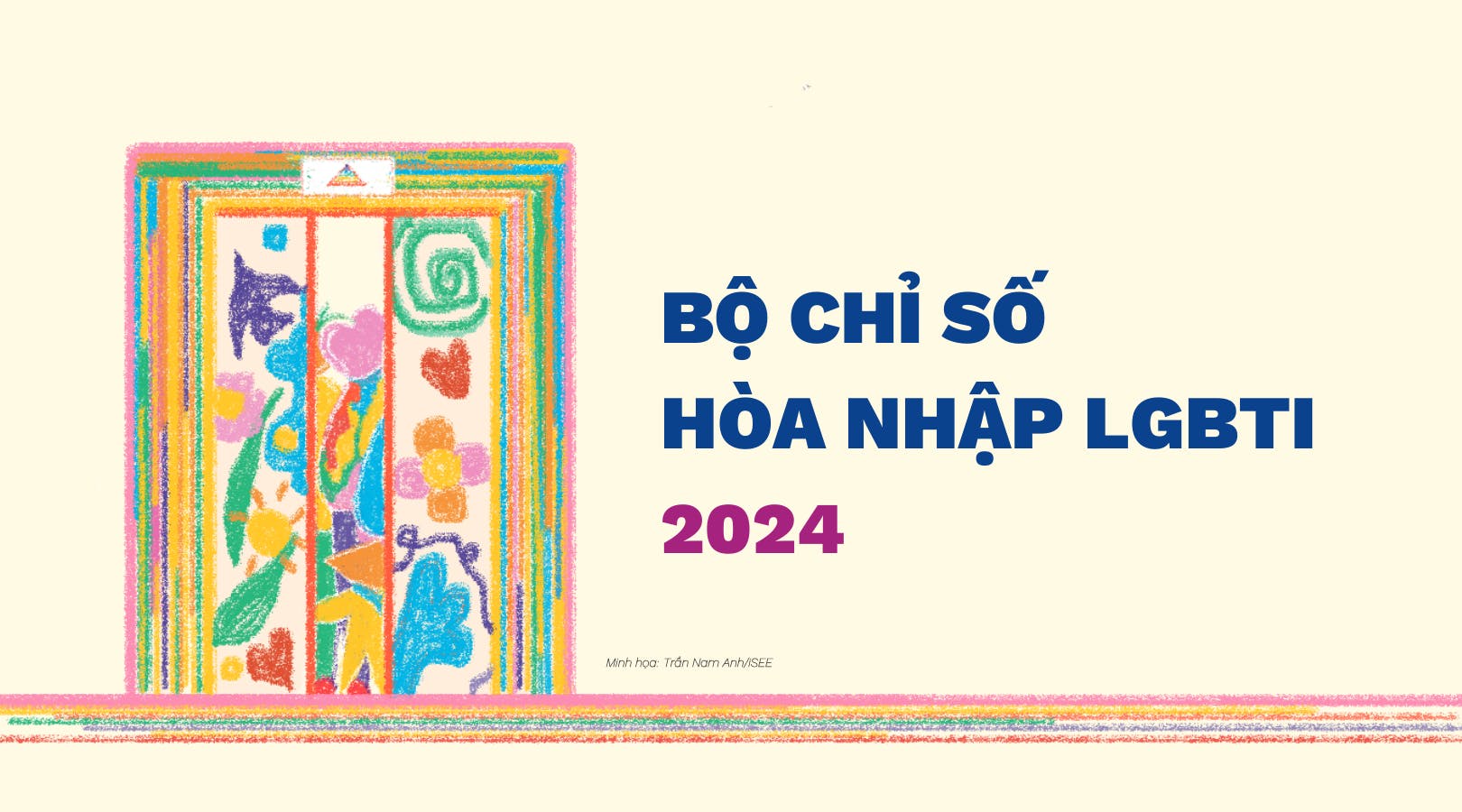
The LGBTI Inclusion Index is a UNDP-led initiative that aims to measure the inclusion of lesbian, gay, bisexual, transgender, and intersex people across the five strategic areas of health, education, personal safety and violence, civil and political participation, and economic empowerment. In Viet Nam, the Index is assessed based on data from legal documents, reports, and case studies, measuring 22 indicators to build the evidence base for monitoring the progress towards LGBTI inclusion.
The LGBTI Inclusion Index is a UNDP-led initiative that aims to measure the inclusion of lesbian, gay, bisexual, transgender, and intersex people across the five strategic areas of health, education, personal safety and violence, civil and political participation, and economic empowerment. In Viet Nam, the Index is assessed based on data from legal documents, reports, and case studies, measuring 22 indicators to build the evidence base for monitoring the progress towards LGBTI inclusion.
Overall scores
Index directory
Education
Education
Safe learning environments
Rate of bullying
This indicator is measuring the rate of bullying, however in Vietnamese law there is no exact definition of "bullying" or other harmful acts towards LGBTI students.
There is no accessible data or official reports from the Ministry of Education and Training on the percentage of students who experience school-related violence and bullying on the basis of gender or SOGIESC during the period 2022-2024.
Measurement is based on the highest recorded percentage of students who reported experiencing at least one form of violence (verbal or physical) as documented in the report “Is It Because I Am LGBTI?” (iSEE, 2023). This measurement specifically considers violence perpetrated by peers/students and does not include discrimination or stigma from teachers or school staff.
Additionally, variations in the level and frequency of violence experienced by individuals are based on sexual orientation, gender identity, and sex characteristics (iSEE, 2023).
Education
Access to education
Non-discrimination policy, students
While Article 6 of the 2016 Law on Children prohibits discrimination against children based on personal characteristics, family circumstances, gender, ethnicity, nationality, beliefs, or religion, it does not contain any provisions related to combating stigma or discrimination based on SOGIESC.
Gender equality and school safety policies still rely on gender definitions outlined in the 2006 Gender Equality Law.
Implementation of non-discrimination policy, students
Vietnam has established national action plans for child protection and addressing violence against children, but SOGIESC is not mentioned in any legal or policy documents. The hotline 111 can be used to report cases of violence and discrimination against children, including those with diverse gender identities, sexual orientations, or sex characteristics, though these aspects are not explicitly mentioned in its mandate.
Political & civic participation
Political & civic participation
Recognition
Decriminalization of same-sex conduct
Vietnamese law does not criminalize same-sex sexual relations or other same-sex sexual acts. The law protects individuals of all sex characteristics, gender identities, sexual orientations, and gender expressions involved in sexual activity, without exclusion or discrimination against any group.
Decriminalization of gender expression
Vietnamese law does not criminalize individuals based on their gender expression.
Article 18 of the 2015 Law on Temporary Detention and Custody provides for separate accommodations for homosexual and transgender detainees, however subject to the facilities available in detention centers.
Legal gender recognition
Article 37 of the 2015 Vietnamese Civil Code recognizes gender affirmation, including the right to re-determine one's gender and the legal recognition of gender after transitioning. The Law on Gender Affirmation is expected to detail the procedures of legal gender recognition, however, this draft law has not yet been discussed by the National Assembly.
Process for updating sex/ gender in documents
The Draft Gender Affirmation Law has not yet been discussed by the National Assembly. This draft includes administrative procedures to update identity documents and official documents, so the legal framework for changing identity documents remains under the 2014 Civil Code. Currently, transgender individuals cannot update their gender on official documents unless they have undergone sex reassignment procedures under Decree 88/2008.
For intersex individuals, an administrative procedure has been in place since 2008.
Statistical inclusion
The 2024 Midterm Population Census collected demographic data on over 100 million individuals, categorizing gender strictly based on biological sex (male/female).
No questions on sexual orientation or gender identity were included. Household structures were recorded based on household size in the 2024 Midterm Population and Housing Census, determined by biological kinship and marital status, as well as single-parent family classifications; without consideration for same-sex couples living together.
Political & civic participation
Freedom of expression & association
Restrictive laws
Under Article 9 of the 2022 Cinema Law, prohibited content in film production includes themes that: Harm cultural values; Endanger national or ethnic interests; Promote social evils or Undermine cultural or moral traditions.
Due to the lack of specific definitions, LGBTI-related content could be deemed culturally or morally inappropriate, leading to restrictions on public dissemination.
LGBTI NGOs allowed
Although no officially registered NGO explicitly states "LGBTI Rights" in its name, some organizations include SOGIESC and LGBTI topics in their descriptions, programs, and activities. The NGO registration process poses challenges for LGBTI groups, and many groups opt to register as social enterprises. This indicator should not include social enterprises.
LGBTI NGOs present
There are no government-affiliated socio-political organizations and national CSOs working on the rights of intersex people and intersex children.
Political & civic participation
Political representation
LGBTI in Parliament
No members of the National Assembly or People's Councils publicly identified as LGBTI.
There is no explicit mention of LGBTI-related policies, equality, or anti-discrimination measures in the official agendas of candidates for the National Assembly and People's Councils (2021–2026).
Economics well-being
Economics well-being
Access to jobs
Employment non-discrimination law
There are no legal instruments (laws, decrees, decisions, or official directives) issued by relevant government agencies that provide comprehensive or partial legal protection against discrimination based on SOGIESC. For intersex individuals, Decree 88/ND-CP/2008 prohibits discrimination only for those who have undergone "sex reassignment surgery", but it does not specify workplace protections or employment access across public and private sectors.
The 2019 Labor Code includes gender as a protected characteristic in its anti-discrimination provisions. Therefore, the scoring reflects partial recognition (0.33/2) for gender-based protections for the gender characteristic value, including intersex people who have reassigned their gender according to Decree 88/ND-CP/2008.
Implementation of employment non-discrimination law
No national-level institution dedicated to human rights and equality is responsible for handling SOGIESC-related employment discrimination cases.
Economics well-being
Social security
Equal benefits
Vietnam does not recognize same-sex marriage, meaning that employment-related benefits, such as partner insurance coverage, parental leave, and family caregiving leave, are only available to legally married heterosexual couples.
Health
Health
SOGIESC inclusive health legislation and policies
Patient non-discrimination protections
The 2023 Law on Medical Examination and Treatment does not contain explicit provisions protecting individuals from discrimination based on SOGIESC. However, the National Strategy to End the AIDS Epidemic by 2030, issued by the Prime Minister, includes measures to increase healthcare access for men who have sex with men (MSM).
This is the basis for assigning partial credit (0.333 points) for covering sexual orientation and gender identity, even though the indicator implies SOGIESC full coverage.
Medical record protections
There is legal protection for the privacy of medical records, and individuals can request a summary of their medical records through a written request. However, there is no confirmation that intersex adults can access their childhood medical records, leading to partial scoring (0.5/1) for this indicator.
For individuals who have undergone legal gender reassignment under Decree 88/2008/ND-CP, the disclosure of patient information and imposes administrative sanctions for the disclosure of information under Article 45(1)(a) of Decree 117/2020/ND-CP. There are no updated regulations or guidelines on data privacy for LGBTI individuals, so the score remains unchanged from the 2022 Index.
Informed consent
The 2023 Law on Medical Examination and Treatment guarantees the right to full information, the right to voluntary examination/treatment, and the right to confidentiality. It also specifies the rights of minors to medical care and the responsibilities of their legal representatives. However, the law does not address medical practices based on SOGIESC characteristics, nor situations where minors are forced to undergo examinations at the request of their representatives or families. Circular 27/2018/TT-BYT likewise provides no guidance on voluntary testing or consent procedures for HIV testing and anal examinations.
There are no official data sources or reports from the Ministry of Health, hospitals, or healthcare regulatory bodies regarding patient assessments of the examination process, information provision process and consent certification of medical practitioners and representatives.
Health
Sexual and reproductive health and rights
HIV prevalence
There is no national data on HIV infection rates for transgender men, LBQ women, and intersex individuals in 2022, 2023, and 2024. To assess this indicator, UNAIDS national statistics on MSM were used, with a round score subtracting the MSM infection rate.
Some regional reports in 2024 also only recorded the infection rate of men who have sex with men (MSM) and transgender people (more than 68% of new HIV infections were recorded in the Mekong Delta, Southeast and Ho Chi Minh City, sexually transmitted infections accounted for over 80% of the total number of new infections, with a significant increase in the rate). MSM continued to account for a high proportion of new infections each year (over 40%). In particular, the Southeast and Mekong Delta regions accounted for nearly 70% of new HIV infections detected in the first 9 months of 2024.
Personal safety & violence
Personal safety & violence
Bodily, physical and psychological integrity
"Normalizing" medical interventions
According to Decree 88/2008, children born with different sex characteristics are considered "persons with congenital sex defect or unidentifiable sex ," requiring "sex reassignment." The decree does not mention children's consent to these "normalizing" medical interventions.
"Conversion therapy"
Medical examination and treatment without consent are prohibited in Vietnam. However, since "conversion therapy" is not explicitly defined, various medical and/or psychological counseling or treatments aimed at changing an individual's SOGIE still occur in practice (iSEE, 2025). There is no official ban on these practices, particularly within mental health services, and there is a lack of monitoring of healthcare facilities.
The official dispatch No 4132, issued by the Ministry of Health (an internal administrative communication between government agencies), is not a legally binding document and does not outline enforcement measures or penalties for violations.
Personal safety & violence
Hate crimes/Incitement to violence
Hate crime legislation/Incitement to violence
Vietnam has no legal definitions for bias-motivated crimes or hate crimes based on SOGIESC. Crimes and acts of violence motivated by hatred toward LGBTI people are assessed based on specific acts and circumstances on a case-by-case basis.
Personal safety & violence
Asylum protections
Asylum protections
There is no data on refugees or asylum eligibility related to SOGIESC status in Vietnam.
About the Index
About the LGBTI Inclusion Index
Globally, data on LGBTI individuals remain incomplete, fragmented, and difficult to collect, making the barriers to their social inclusion less visible.
The LGBTI Inclusion Index is a global initiative developed by UNDP to measure the inclusion of LGBTI individuals across five dimensions:
- Health
- Education
- Personal security and violence
- Political and civic participation
- Economic well-being
“Inclusion” here is understood as “... that every person has access to opportunities (including the capabilities to do and be as one chooses) and is able to make choices that lead to outcomes consistent with human dignity.”
The direct purpose of an LGBTI Inclusion Index is to measure inclusion in all countries and to provide several perspectives on the data:
- Comparing the overall degree of inclusion across countries;
- Measuring progress toward inclusion over time within countries, regions, or globally;
- Setting benchmarks for countries to achieve new levels of inclusion; and
- Demonstrating where resources are most needed to enable and support sustainable human development for LGBTI people, as shown through outcome measures in the index.
*SOGIESC stands for sexual orientation, gender identity, gender expression and sex characteristics.
Implementing the LGBTI Inclusion Index in Viet Nam
In 2022, the UNDP country office in collaboration with the United States Center for Disease Control and Prevention (U.S. CDC) jointly funded the pilot phase of the LGBTI Inclusion Index. This initiative was coordinated and carried out by Lighthouse Social Enterprise (Hải Đăng) and the Institute for Studies of Society, Economy, and Environment (iSEE), in collaboration with a Working Group. The 2022 report on the Inclusion Index included 22 out of 51 indicators, establishing baseline data for Level 1 and Level 2 indicators.
In the next phase of the Inclusion Index implementation (2024-25), the Working Group will focus on updating the 22 indicators based on the latest legal and policy documents related to LGBTI persons. At the same time, UNDP and iSEE are collecting Level 3 data—information on societal attitudes and acceptance of LGBTI persons that isn’t readily available.
How to measure
The development of the indicators involved reviewing the Sustainable Development Goals (SDGs), studies on health, economics, education, violence, and political participation among LGBTI persons, and consultations with civil society organizations. The set of indicators taken as a whole must include each group within the LGBTI umbrella (lesbian, gay, bisexual, transgender, and intersex persons). While each individual indicator might not relate to all groups, group-specific indicators reflect issues that have particular importance for some groups.
The data sources for the LGBTI Inclusion Index in Vietnam include legal documents, public reports, case studies, and reports from development agencies and civil society organizations.
In Vietnam, the scoring processes in 2022 and 2024 were carried out with the active participation of the LGBTI Inclusion Index 2024 Working Group. The Working Group includes the following organizations: IT’S T TIME, ICS Center, SCDI, iSEE, CSAGA, Save the Children in Vietnam, Venus Social Enterprise, Oxfam in Vietnam, Asexual in Vietnam, Y-PEER Vietnam, and Lighthouse Social Enterprise.
Measuring the index
- 1iSEE and The Working Group collect and categorize data across five strategic dimensions.
- 2iSEE consolidates the data and measures the indicators.
- 3Findings are reviewed and revised in collaboration with the Working Group, with input from UNDP.
- 4The LGBTI Inclusion Index is finalized.